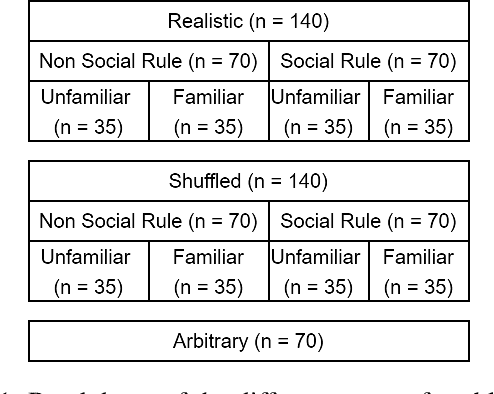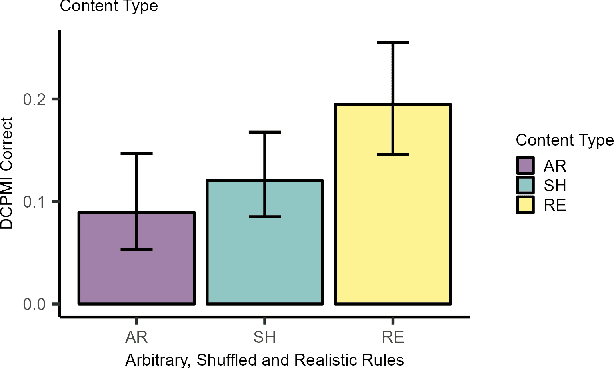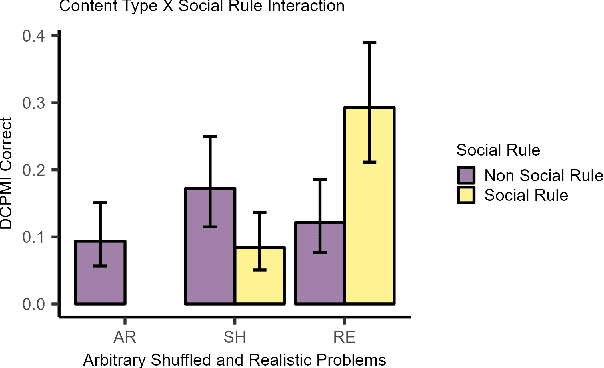Evaluating the Deductive Competence of Large Language Models
Paper and Code
Sep 11, 2023



The development of highly fluent large language models (LLMs) has prompted increased interest in assessing their reasoning and problem-solving capabilities. We investigate whether several LLMs can solve a classic type of deductive reasoning problem from the cognitive science literature. The tested LLMs have limited abilities to solve these problems in their conventional form. We performed follow up experiments to investigate if changes to the presentation format and content improve model performance. We do find performance differences between conditions; however, they do not improve overall performance. Moreover, we find that performance interacts with presentation format and content in unexpected ways that differ from human performance. Overall, our results suggest that LLMs have unique reasoning biases that are only partially predicted from human reasoning performance.
 Add to Chrome
Add to Chrome Add to Firefox
Add to Firefox Add to Edge
Add to Edge